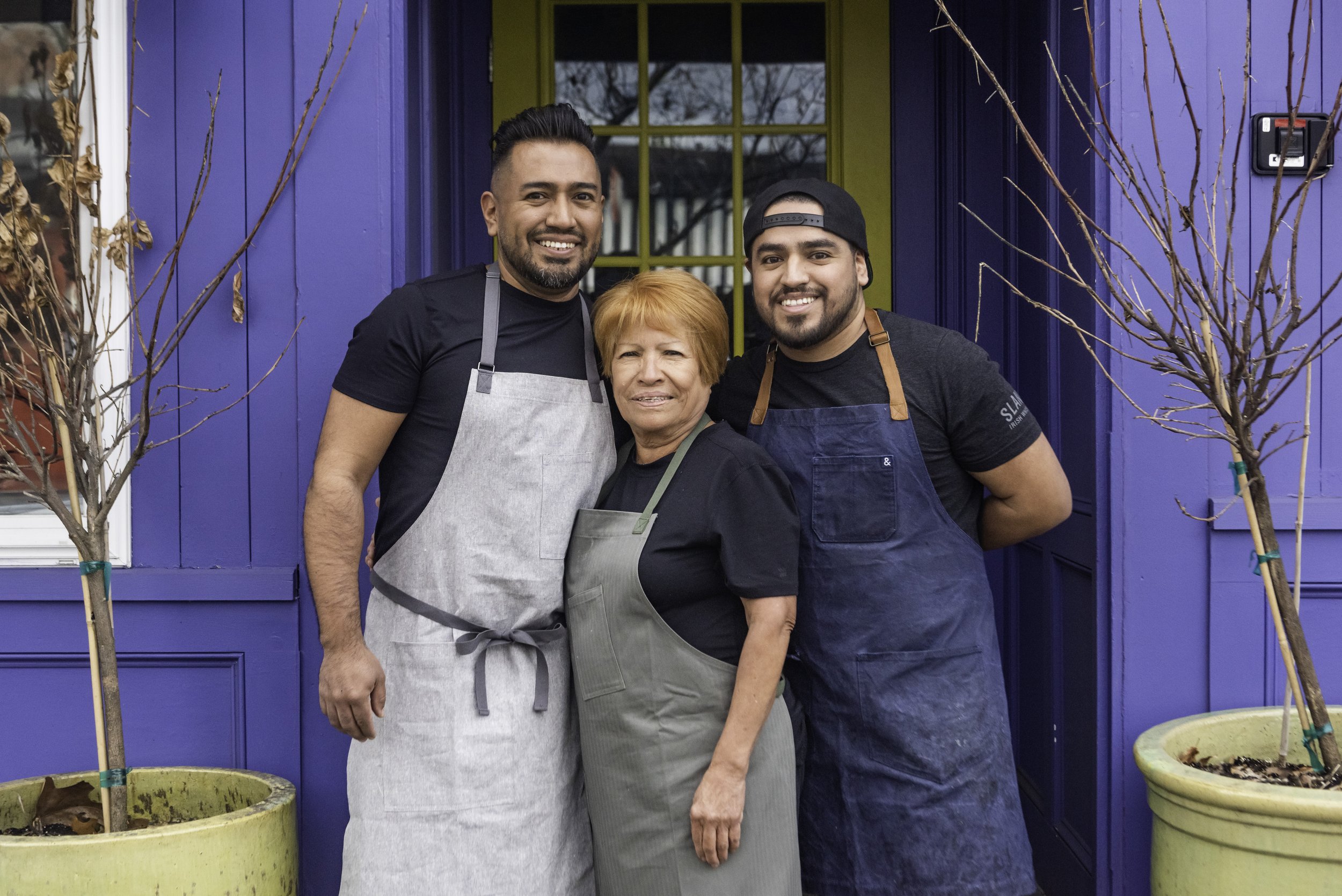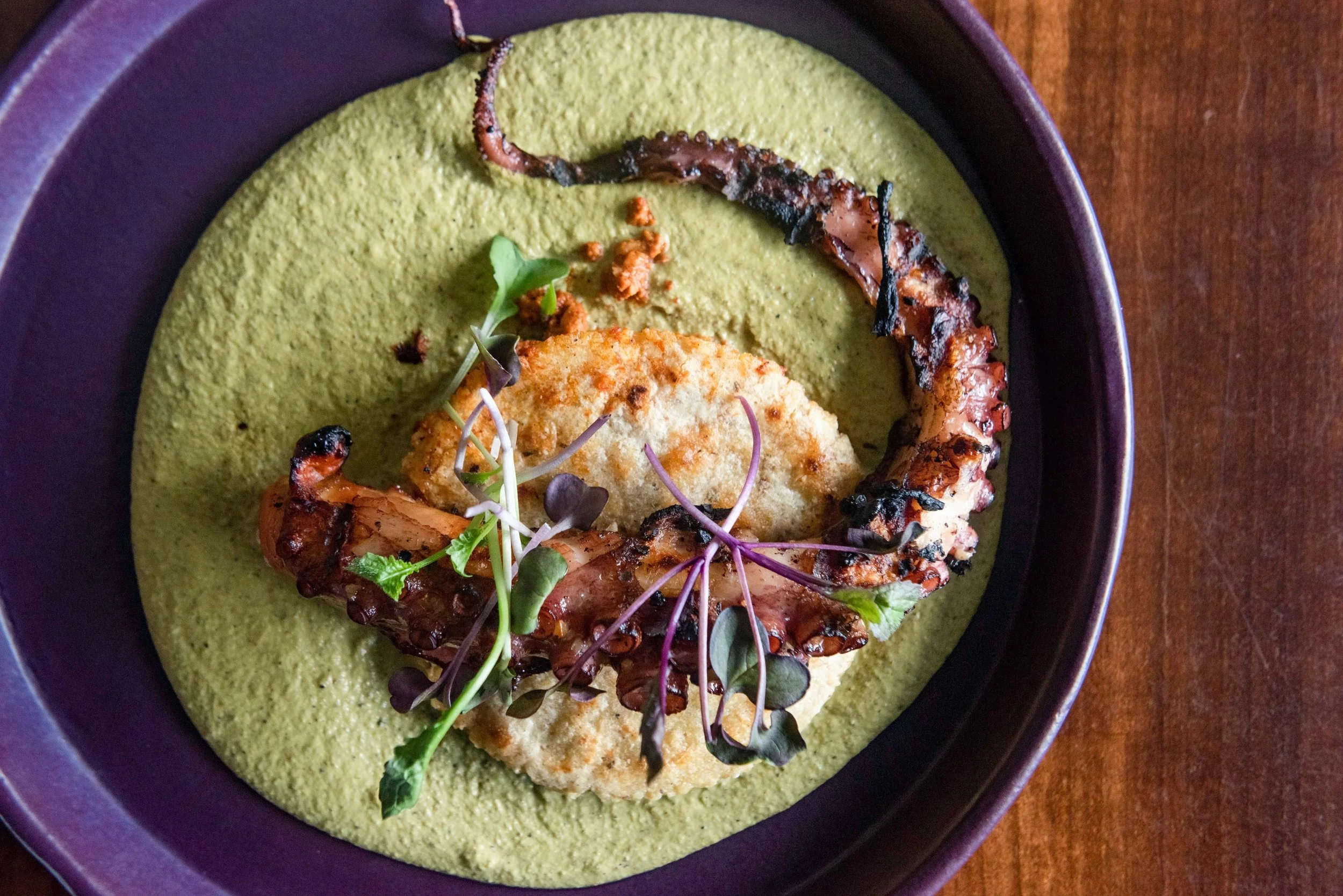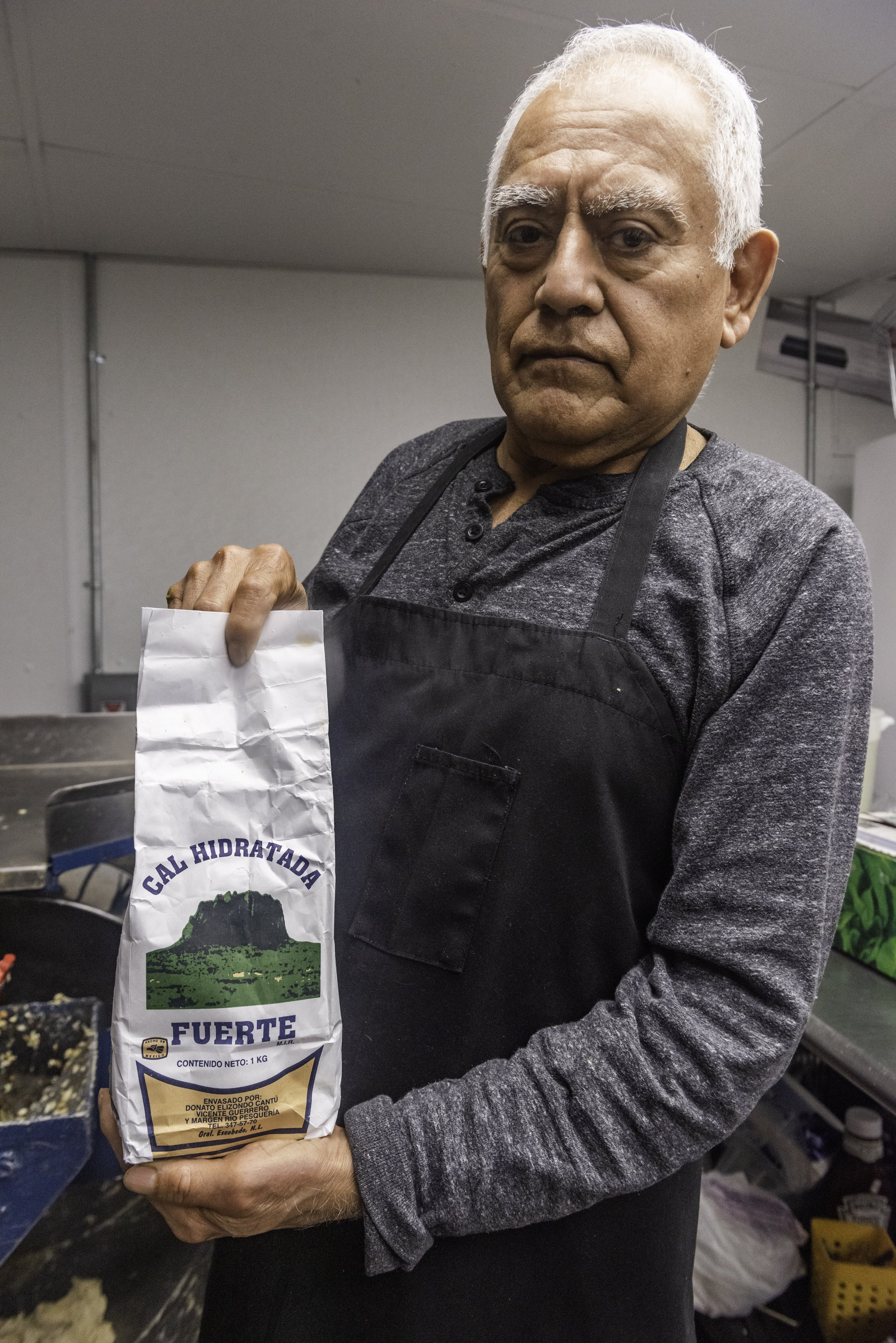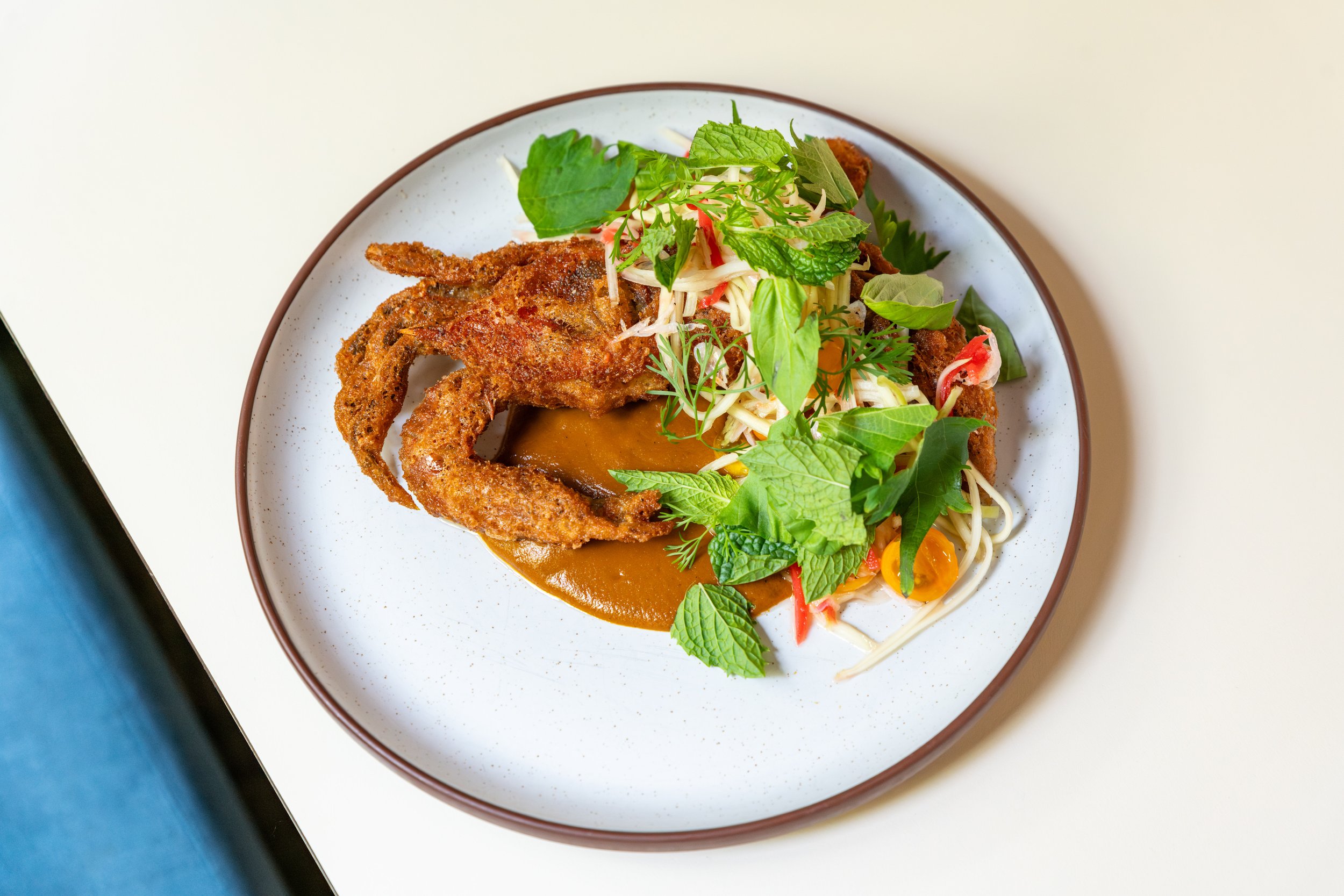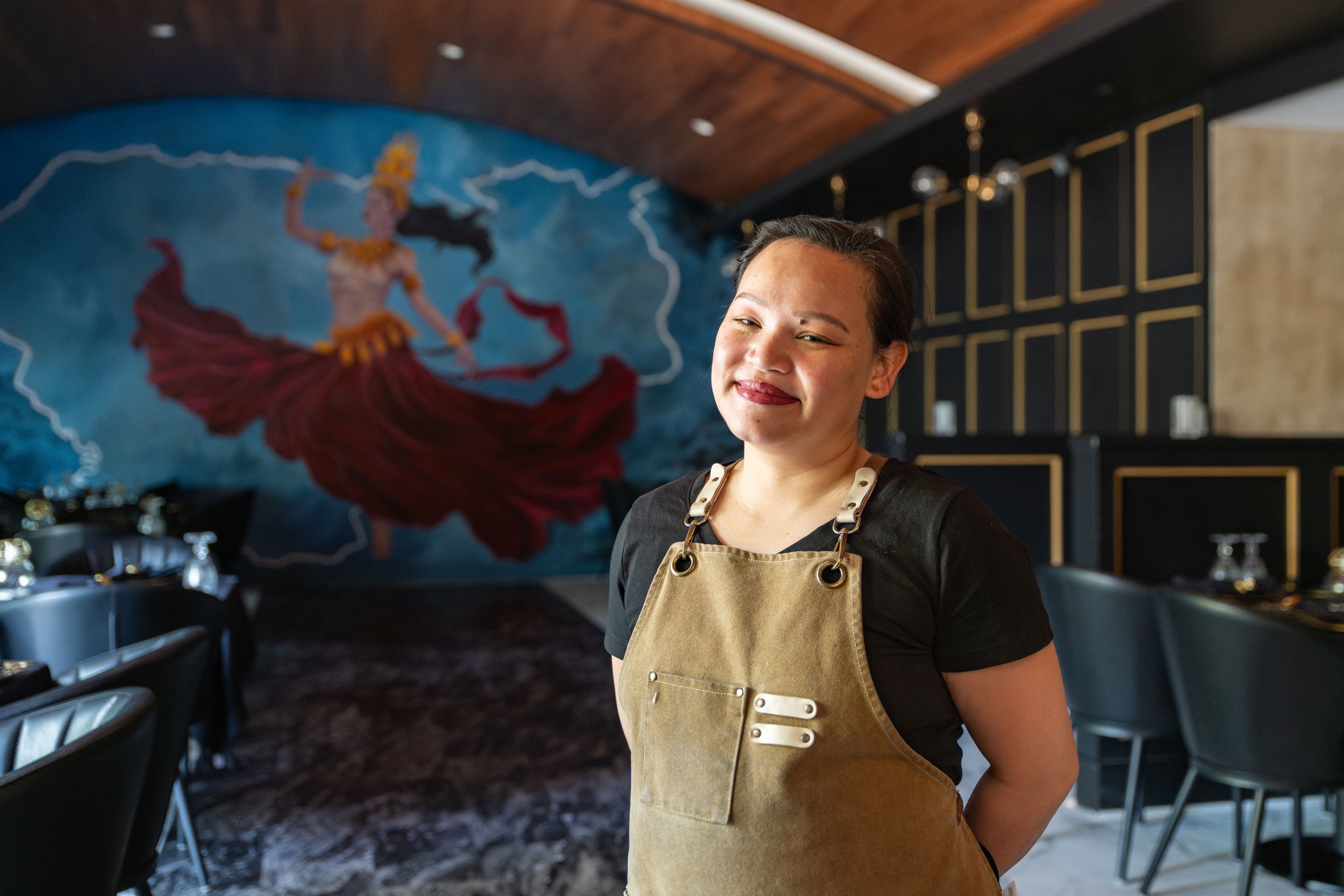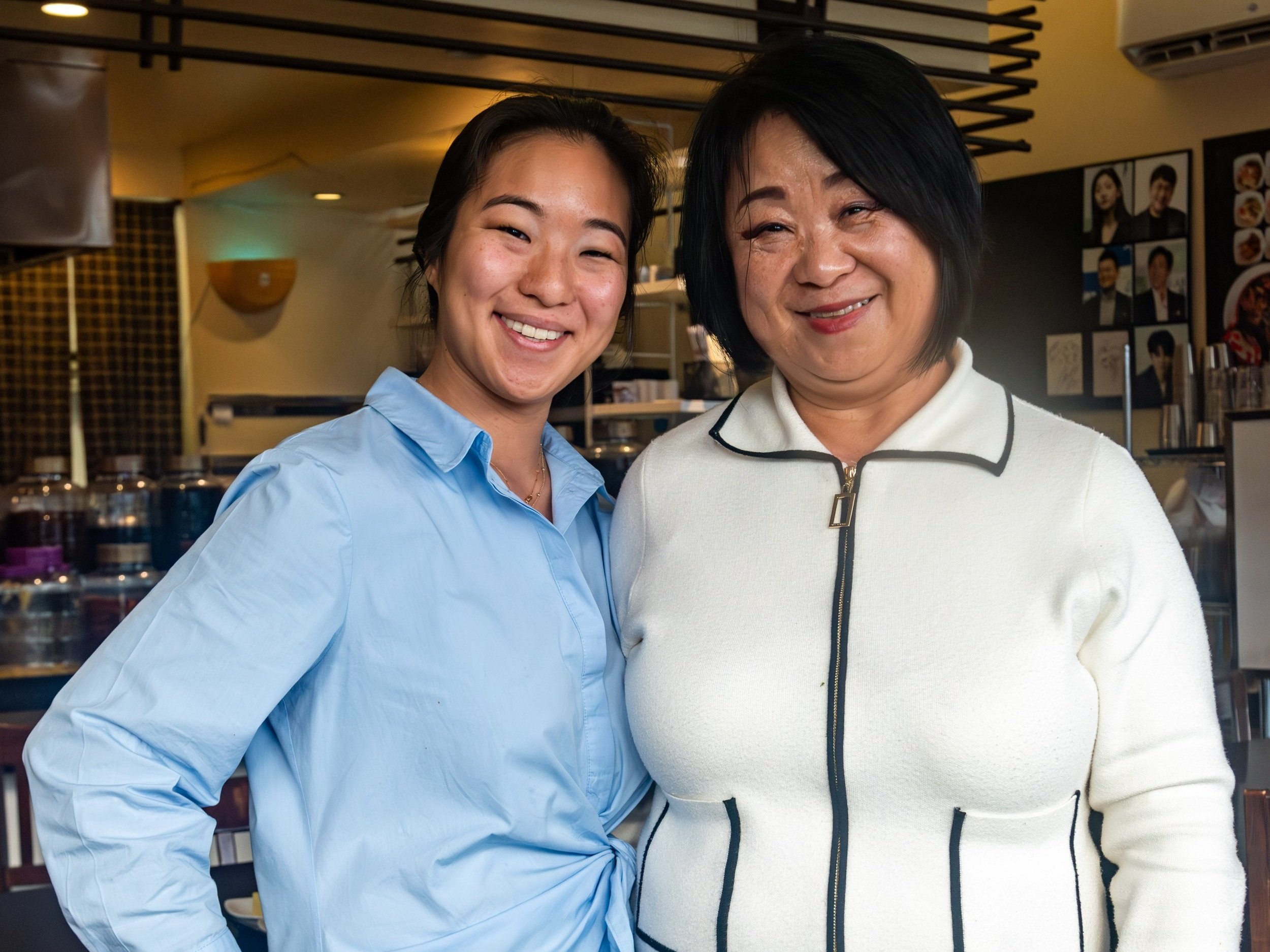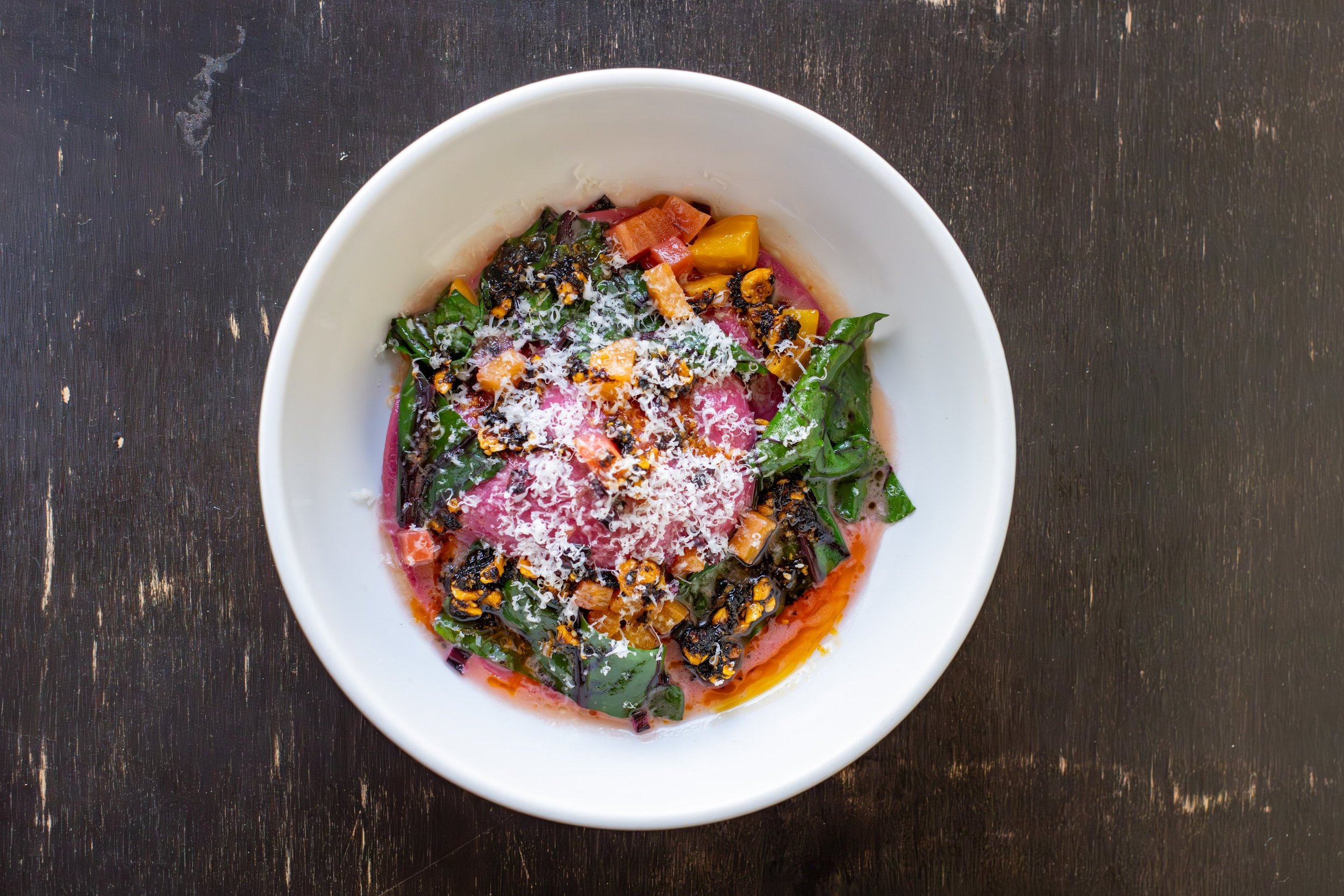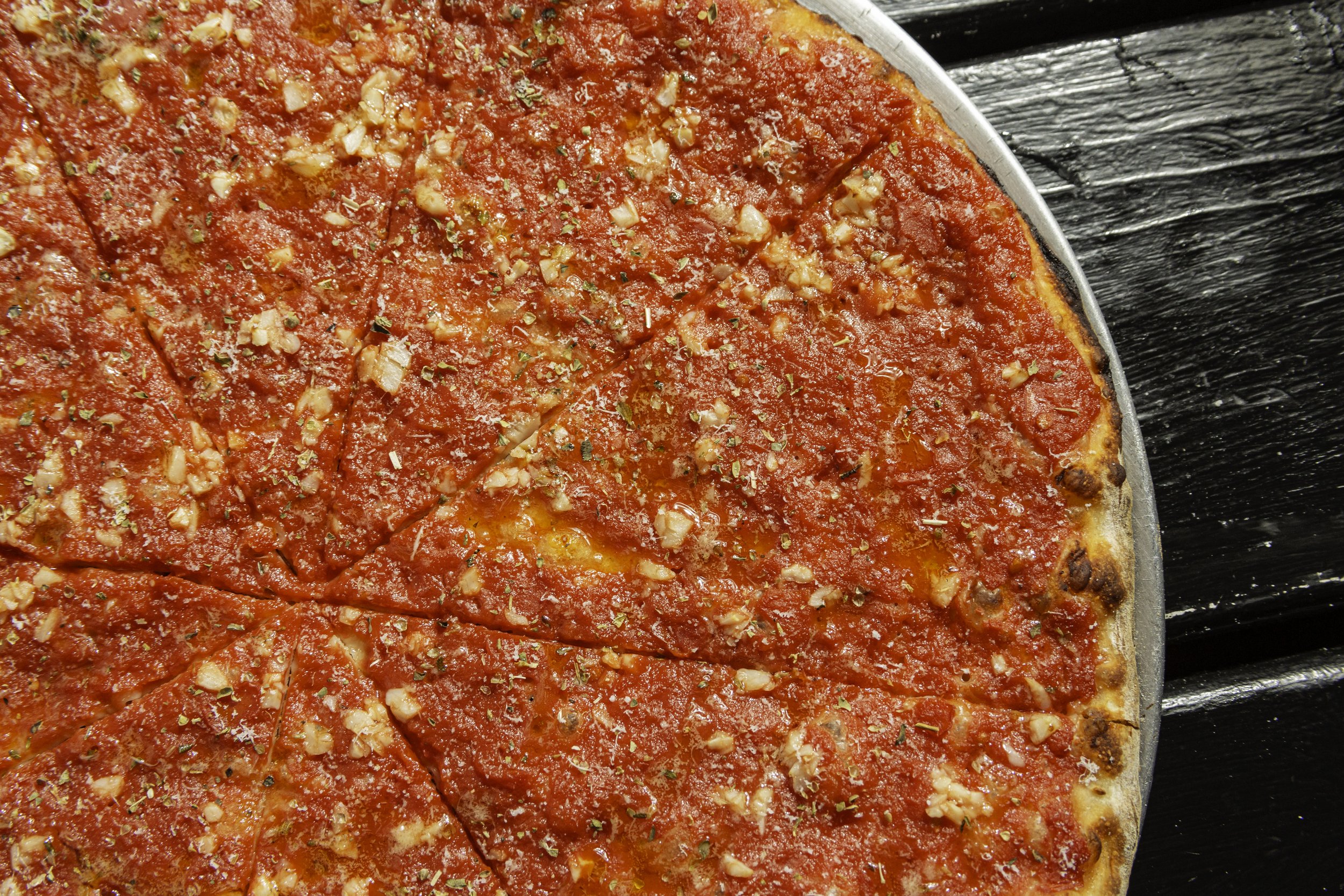A Family's Reflection at Dolores
How culinary expression reconnected the Meza family with their roots in Providence, Rhode Island
Photos: Will Blunt
For co-owner Joaquin Meza and his family, after over a decade of being a part of the Providence restaurant scene, their restaurant Dolores is finally allowing them to share a personal reflection of their heritage.
El Rancho Grande, the Meza family's first restaurant in Providence, opened on Cinco de Mayo in 2007, where they served burritos, tacos, and fajitas.
But to the Meza family, it wasn't quite what they wanted to share with the Providence community. “It felt like it was something that wasn't true to us. We didn't eat that way. We never ate burritos in Mexico," says Joaquin, whose family is from the Mixteca region of Puebla and Oaxaca.
Looking to share something more in line with their background, the family opened their second restaurant, Dolores, in Providence the week after Thanksgiving in 2019. "It was different from what people were used to.
When we first opened, after working on it for a year and a half, there was a completely new clientele and we were super busy," he says. "We used to open at four o'clock, and there would be people waiting for us to open. It was madness."
Between the two restaurants, it became an all-hands-on-deck family affair. He and his brother, Marco Meza, ran the bar at El Rancho, and his mom (and co-owner), Maria Meza, helped with the cooking and prep of vegetables, meats, moles, and sauces. Co-owner Kim Giloran the front of the house operations at Dolores, and Joaquin led the food program.
While only three miles apart, the restaurants were in distinctly different neighborhoods. Dolores is located on upscale College Hill, while El Rancho was located in a blue collar neighborhood that was rapidly gentrifying. The Meza family received some negative feedback from El Rancho's diners online, signaling that they “sold out” due to the move to a wealthier neighborhood and more upscale Mexican dining. "To them, El Rancho was their idea of Mexican food. But Dolores, it's our Mexican food," says Joaquin.
Originally, they were going to keep both restaurants open since they served a different clientele, but with the ongoing staffing issues during the pandemic, they decided to shutter El Rancho. "It felt like Rancho no longer represented us."
Mole Pistachio, Charred Octopus, Chorizo-Potato Gordita
Seasonal Spicy Margarita: Blanco Tequila, Chile Syrup, Cucumber Water, Lime Juice, Triple Sec, Spicy Salt
The first menu when they reopened Dolores in 2020 was takeout-only (think tacos, wood-fired whole chicken, and to-go cocktails). They would refresh the menu every two weeks to keep locals returning from more.
Dolores is an homage to the Meza family. “Dolores is my grandmother from my dad's side,” says Joaquin. She passed away in Mexico in 1992, and they moved to the U.S. shortly before as a family when Joaquin was 11. He remembers her vividly, but one memory stands out among all of them: "She was making tortillas. I remember when I entered the kitchen, she rolled up a tortilla, sprinkled it with salt, and handed it to me. That was the last dish I had with her [before we left]," he recalls.
The menu showcases things Joaquin grew up eating: guisados, moles, and ceviches. You'll also find tacos, but with a more regional twist and served family-style—lengua, cochinita pibil, and carnitas. Maria's famous mole poblano is one of the main entrées, a dish she learned in Mexico from her aunts.
At Dolores, Joaquin's mom is at the center of it all. When they first opened the restaurant, she had a significant role in the kitchen as she did at El Rancho, but with the new style of cuisine, she started embracing the role of collaborator with Joaquin, and took a step back to let him grow. Now, Joaquin dreams up potential dishes, and they collaborate together with her expertise in flavors and sauces. “She's very open to [testing and tasting] until we get it right,” says Joaquin.
Most recently, they collaborated on a mole verde for an octopus dish incorporating pistachios. "I think that it showcases how we both work," he says.
The other unsung hero of Dolores is his dad, also named Joaquin. He takes a more minor role in the business, but is the catch-all of all vital duties within the restaurant, operating as the glue to keep things moving. "He always did the things that nobody else did," he says. From breaking down boxes to buying last-minute plantains for service, he always popped up to "do the little odd ins and outs."
“But now he's in charge of making nixtamal every night and grinding the corn, which is a huge part of our kitchen,” says Joaquin.
For Joaquin, the non-negotiable, or "capricho" as he calls it, was his wood-fired grill. They also imported a molino from Mexico to make masa daily for tortillas, and prepare cacao beans for Mexican hot chocolate and mole. Marco, alongside Bartender Horus Alvarez, crafted a bar program focused on small-batch tequila and mezcal distilleries. “Our agave program is so crucial,” says Alvarez. “We focus on small producers, Mexican brands that are making and keeping the tradition alive.”
“I didn't go to culinary school, I'm just learning from my mother. I want to show people what Mexican food is to me," says Joaquin.

